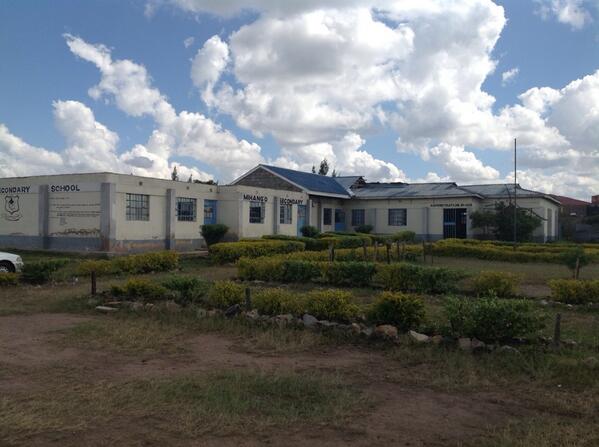Technology Disruption in Real Estate
“Explore how proptech in Kenya is transforming real‑estate technology and digital property solutions — from online marketplaces and blockchain land registries to smart‑home systems and investor tools. Learn how to adopt these solutions, understand costs/ROI, and stay ahead in Kenya’s evolving property market.”
What is PropTech and Why It’s Critical in Kenya
Intro paragraph:
Technology Disruption in Real Estate
PropTech in Kenya is rapidly transforming how people buy, sell, and manage property. Real‑estate technology Kenya offers digital property solutions Kenya that make transactions faster, more transparent, and cost‑effective. Understanding PropTech is essential for buyers, landlords, developers, and investors who want to stay competitive in Kenya’s evolving property market.
Definition – property + technology
PropTech, short for property technology, refers to the use of digital tools and software to improve the way properties are bought, sold, leased, and managed. This includes online property marketplaces, virtual tours, blockchain for land titles, and smart property management systems. Essentially, it bridges the gap between traditional real estate processes and modern digital solutions.
The Kenyan context – digital infrastructure, mobile penetration, urban growth
Kenya’s high mobile penetration and improving internet infrastructure make it an ideal market for PropTech solutions. Urban growth in cities like Nairobi, Mombasa, and Kisumu is driving demand for efficient property search, investment tools, and digital property management. Additionally, mobile money platforms like M‑Pesa integrate seamlessly with real‑estate technology Kenya, simplifying rent collection and transactions.
How real‑estate technology Kenya differs from traditional methods
Unlike traditional real estate, PropTech platforms provide instant access to property data, online viewings, and automated management tools. They reduce paperwork, enhance transparency, and allow investors to monitor property performance in real time. Digital property solutions Kenya also help minimise fraud and errors in property transactions.
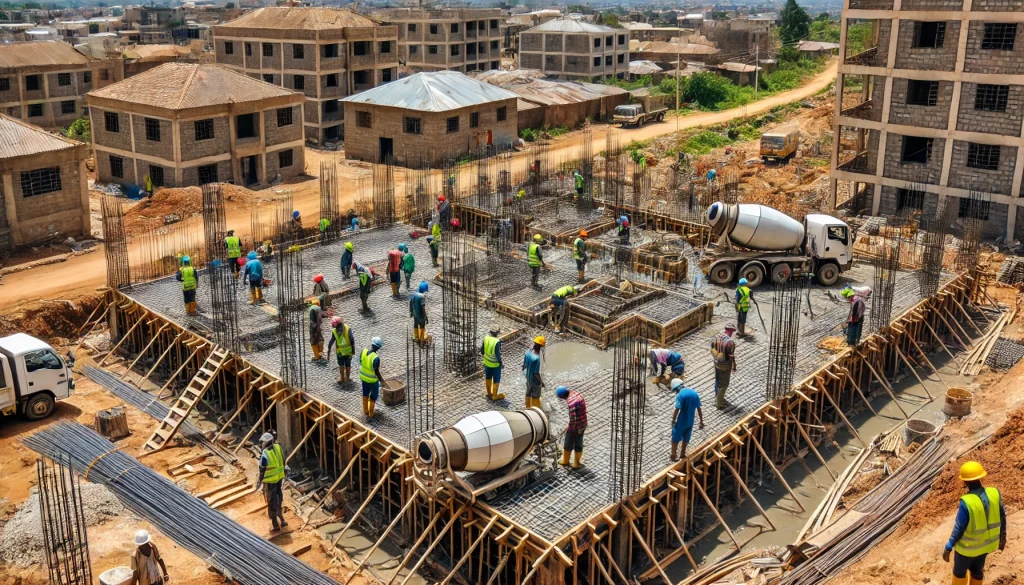
Key stakeholders: buyers, sellers, landlords, developers, diaspora
PropTech benefits a wide range of stakeholders in Kenya:
- Buyers: can search and view properties online, compare prices, and access virtual tours.
- Sellers: reach a wider audience quickly using online marketplaces.
- Landlords: automate rent collection, tenant management, and property maintenance.
- Developers: monitor projects digitally, track sales, and manage construction timelines.
- Diaspora Kenyans: invest and manage property remotely through digital platforms.
Key Drivers of PropTech Adoption in Kenya
PropTech in Kenya is gaining momentum because of several key drivers. Real‑estate technology Kenya and digital property solutions Kenya are expanding rapidly due to improvements in infrastructure, government support, and growing investor interest. Understanding these drivers helps stakeholders adopt the right solutions and maximise their benefits.
Mobile & internet reach, fintech convergence
Kenya has one of the highest mobile penetration rates in Africa, and widespread internet access makes digital property solutions Kenya highly accessible. The convergence of fintech and PropTech—like integrating M‑Pesa with rent collection and property payments—enables seamless, secure transactions. Mobile apps now allow landlords, developers, and buyers to manage properties anytime, anywhere.
Government initiatives/regulatory reforms (e‑land, e‑citizen)
Government initiatives such as e‑Land and e‑Citizen platforms are modernising property registration and approvals. These reforms reduce bureaucracy and create a more transparent environment for PropTech adoption. Landowners, developers, and investors benefit from quicker processes, lower risk, and easier compliance.
Diaspora investment influence & remote access needs
Kenyan diaspora investors play a significant role in driving PropTech adoption. They require remote access to property listings, digital contracts, and management tools. Platforms offering virtual tours, online payment, and remote monitoring enable diaspora Kenyans to invest safely and efficiently.
Demand for transparency, efficiency & cost‑saving
Buyers, landlords, and developers increasingly demand transparency and efficiency in property transactions. Digital property solutions Kenya provide real-time data, reduce paperwork, and cut operational costs. PropTech also minimises fraud and errors, improving trust in the market and boosting adoption.
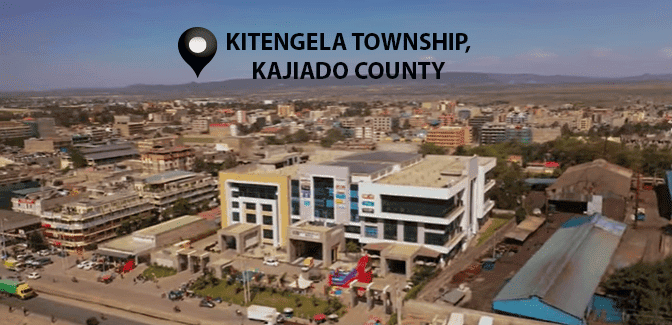
Core PropTech Solutions Transforming the Kenyan Market
PropTech in Kenya is revolutionising how properties are bought, sold, and managed. Real‑estate technology Kenya and digital property solutions Kenya now provide tools that simplify property searches, investment decisions, and property management. These solutions are essential for buyers, landlords, developers, and investors looking to stay competitive.
Digital marketplaces & online listings (digital property solutions Kenya)
Digital marketplaces allow users to list, search, and compare properties online. Buyers can view detailed property information, photos, and prices instantly, while sellers reach a wider audience without traditional agents.
- Examples include BuyRentKenya and Property24.
- Enables fast transactions and price transparency..
Virtual & augmented reality property tours
VR and AR property tours let potential buyers and investors view homes remotely. Users can explore interiors in 3D, reducing the need for physical visits.
- Saves time and travel costs.
- Useful for diaspora Kenyans and busy investors.
Blockchain, smart contracts & land‑registry digitisation
Blockchain technology is being adopted to secure land titles and property transactions. Smart contracts automate agreements, ensuring transparency and reducing fraud.
- Land‑registry digitisation simplifies ownership verification.
- Speeds up property transfers and reduces legal disputes.
Smart homes, IoT and intelligent property management
IoT devices and smart-home systems enhance property value and convenience. Tenants can control lighting, security, and energy usage remotely.
- Smart sensors help with maintenance alerts.
- Property managers can track utilities and optimise operations.
Property‑management platforms/CRM/rent‑collection via mobile money
Property-management platforms and CRM software streamline tenant onboarding, communication, and rent collection. Mobile money integration, such as M‑Pesa, makes payments faster and secure.
- Automates rent reminders and accounting.
- Reduces operational errors and missed payments.

Big data, AI & predictive analytics for property investment
Big data and AI help investors make informed decisions. Platforms analyse market trends, predict property values, and identify high-return areas.
- Enables better portfolio management.
- Reduces risk by providing actionable insights.
Tokenisation & fractional ownership (emerging)
Tokenisation allows investors to buy fractions of properties digitally. This lowers the barrier to entry and opens real estate investment to a wider audience.
- Supports crowdfunding and smaller investors.
- Creates liquidity in previously illiquid markets.
How PropTech Works Across the Real Estate Value Chain
PropTech in Kenya impacts every step of the real estate process. Real‑estate technology Kenya and digital property solutions Kenya make property transactions faster, safer, and more efficient for all stakeholders.
For buyers & investors — finding, viewing, paying, owning
Buyers and investors use PropTech to search for properties, schedule virtual tours, and complete transactions online.
- Online marketplaces provide real-time listings and pricing.
- Virtual property tours allow detailed inspections without physical visits.
- Payment integration with M‑Pesa or bank transfers streamlines property ownership.
For sellers & developers — marketing, contracting, project tracking
Sellers and developers can showcase properties digitally, manage contracts, and track project progress efficiently.
- Digital platforms expand reach to a larger audience.
- Smart contracts reduce fraud and automate agreements.
- Project management tools monitor timelines, budgets, and milestones.

For landlords & property managers — leasing, tenant onboarding, rent collection
Landlords and property managers benefit from automated leasing, onboarding, and rent collection.
- CRM systems streamline tenant communication.
- Rent collection via mobile money ensures timely payments.
- Maintenance requests and utility monitoring can be automated.
For diaspora Kenyans — remote investing & oversight
Kenyan diaspora investors can manage property portfolios remotely using PropTech platforms.
- Access property listings and virtual tours from abroad.
- Sign digital contracts securely online.
- Monitor rental income and maintenance updates in real time.
Getting Started with PropTech in Kenya: Adoption Guide
Adopting PropTech in Kenya requires careful planning. Real‑estate technology Kenya and digital property solutions Kenya help stakeholders maximise efficiency, transparency, and ROI.
Steps to evaluate and select solutions (needs assessment, vendor short‑list, pilot)
Start by assessing your property needs, shortlisting vendors, and running a pilot before full implementation.
- Identify which tools suit buyers, landlords, or developers.
- Evaluate local support and integration capabilities.
- Conduct a trial run to test usability and functionality.
Cost and ROI considerations (set‑up, training, subscription, savings)
Evaluate the total cost of adoption and expected return on investment.
- Setup and training fees for staff.
- Monthly or annual subscriptions for software platforms.
- Time savings, reduced fraud, and operational efficiency as ROI benefits.
Integration with existing systems (legacy, accounting, legal)
Ensure that PropTech tools integrate seamlessly with current systems.
- Connect with accounting software for automated reporting.
- Ensure compliance with legal requirements for contracts and tenancy.
- Avoid duplication or conflicts with existing property management workflows.
Best practices: data hygiene, change‑management, mobile integration
Implement best practices to ensure smooth adoption.
- Keep property and tenant data accurate and secure.
- Train staff and stakeholders on new systems.
- Optimise mobile access for real-time property management.
Regulatory, Legal & Data Challenges for PropTech in Kenya
Despite its benefits, PropTech adoption in Kenya faces regulatory and technical challenges. Understanding these issues helps stakeholders implement solutions effectively.
Land‑registry and title deed digitisation hurdles
Digitising land registries can be slow due to bureaucratic processes.
- Some counties have incomplete digital records.
- Verifying titles remains critical to prevent disputes.
E‑signatures, contract validity and Kenyan law
Digital contracts and e‑signatures must comply with Kenyan law.
- Legal recognition of e-signatures is essential.
- Misuse or misinterpretation can delay property transactions..
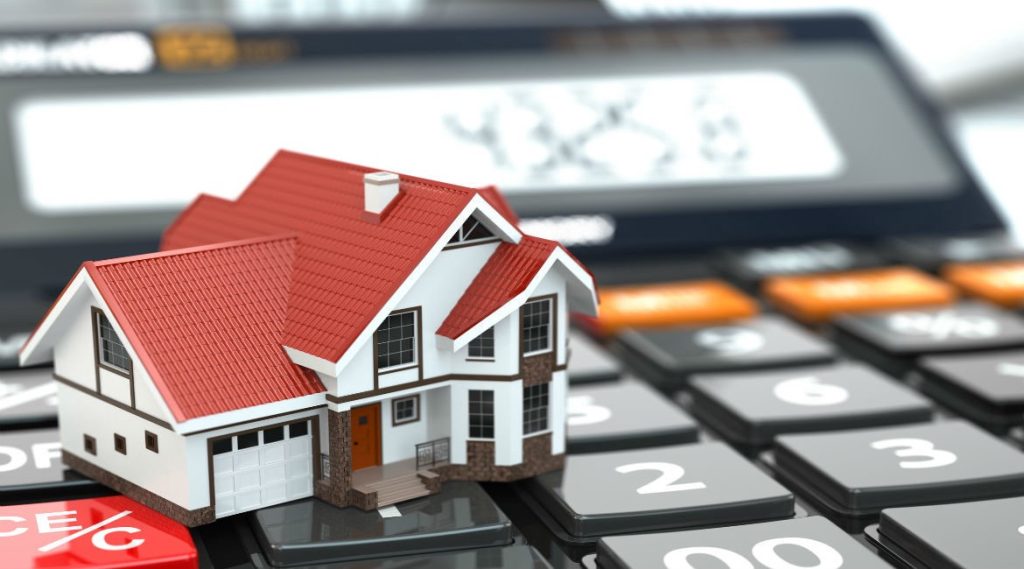
Data‑privacy, cybersecurity & trust issues
Data security is a top concern for PropTech platforms.
- Protect tenant and investor information from breaches.
- Ensure platforms have proper encryption and privacy policies.
- Build trust with users through transparent operations.
Infrastructure and digital literacy gaps
Limited internet access and low digital literacy can slow adoption, especially in smaller towns.
- Training and user-friendly platforms help bridge this gap.
- Investments in infrastructure expand PropTech reach.
Market Examples & Kenyan PropTech Startups
PropTech in Kenya is growing rapidly, with startups and platforms offering innovative digital property solutions Kenya. These companies are transforming real‑estate technology Kenya by making property search, management, and investment more efficient and secure.
Leading marketplace example: BuyRentKenya – how it changed listings in Kenya
BuyRentKenya is one of the most popular digital marketplaces in Kenya. It provides comprehensive property listings, detailed descriptions, photos, and pricing.
- Buyers can search properties by location, price, and type.
- Sellers and developers reach a wider audience without traditional agents.
- Enables transparency and faster transactions for both parties.
PropTech for land‑fraud solutions: My Shamba Digital – land‑registry risk mitigation
My Shamba Digital is a startup focused on reducing land fraud in Kenya. It digitises land records and provides secure verification for property ownership.
- Protects buyers and investors from title disputes.
- Enhances transparency in property transactions.
- Supports both urban and rural property investments.
Startups focusing on tokenisation/fractional ownership: Hodhi – digital assets backed by real estate
Hodhi allows investors to purchase fractions of properties through tokenisation. This opens real estate investment to a broader audience.
- Enables smaller investors to participate in the market.
- Increases liquidity for traditionally illiquid property assets.
- Supports crowdfunding initiatives for developers.
Real‑estate CRM/property management platforms (local examples)
Local CRM and property management platforms help landlords, developers, and agents manage properties efficiently.
- Automates tenant onboarding and communication.
- Tracks rent collection and maintenance requests.
- Integrates with mobile payment solutions like M‑Pesa.

Comparative case studies: Nairobi vs secondary cities
PropTech adoption is faster in Nairobi due to higher digital literacy, better internet, and larger investment activity. Secondary cities like Kisumu, Mombasa, and Nakuru are catching up.
- Nairobi sees more virtual tours, tokenisation, and marketplace activity.
- Secondary cities rely more on basic digital listings and property management tools.
- Opportunities exist for startups to expand to underserved regions.
Cost, ROI & Business Models in Kenyan PropTech
Understanding the costs and potential returns is crucial for adopting PropTech in Kenya. Real‑estate technology Kenya and digital property solutions Kenya offer various business models that cater to different stakeholders, from small landlords to large developers.
Typical pricing/subscription models for SaaS property‑management or marketplace platforms
Most PropTech platforms in Kenya operate on subscription or pay-as-you-go models.
- Monthly or annual SaaS subscriptions for property management tools.
- Transaction fees on digital marketplaces for listings or property sales.
- Some platforms offer tiered pricing depending on features or number of users.
Revenue streams: subscription, transaction fees, value‑added services (analytics, tokenisation)
Kenyan PropTech companies generate revenue through multiple channels.
- Subscription fees for software access.
- Transaction fees for property sales, rentals, or bookings.
- Value-added services like analytics, AI-driven insights, or tokenised investments.
ROI case‑studies: time‑savings, reduced fraud, higher occupancy, investor reach
Investing in PropTech can provide measurable returns.
- Faster property transactions save time for buyers and sellers.
- Digital tools reduce fraud and errors in property deals.
- Improved property management increases occupancy rates and investor satisfaction.
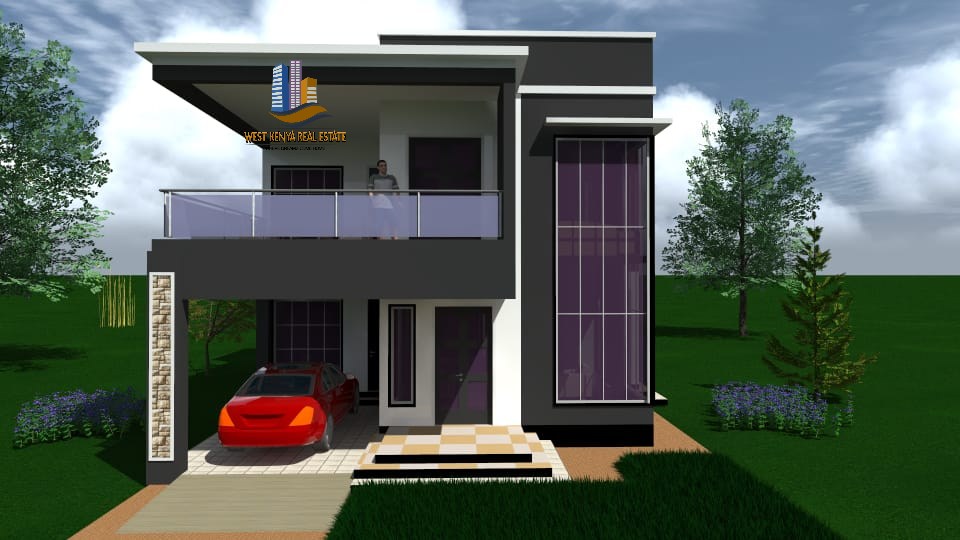
Budgeting for small landlords vs large developers
Budget considerations vary depending on the scale of adoption.
- Small landlords may prioritise rent collection apps and tenant management tools.
- Large developers may invest in end-to-end platforms, virtual tours, and AI analytics.
- Planning upfront ensures a clear ROI and prevents overspending.
Challenges & Risks to Watch
While PropTech adoption in Kenya is promising, stakeholders must navigate several challenges. Understanding these risks helps users implement solutions safely and effectively.
Digital divide, rural vs urban adoption
Access to high-speed internet and digital literacy differs across regions.
- Urban areas like Nairobi adopt PropTech faster.
- Rural and secondary cities may rely on basic listings and mobile payment solutions.
Cultural/trust issues & resistance to change
Some users may hesitate to adopt digital property solutions due to mistrust or unfamiliarity.
- Traditional methods are deeply ingrained.
- Education and demonstrations can improve adoption.
Regulatory uncertainty and legacy systems inertia
PropTech must operate within Kenya’s legal framework, which may lag behind technology.
- Legacy systems may slow adoption.
- Policies on e-signatures, contracts, and land registration can be unclear.
Cybersecurity, data breaches, platform reliability
Protecting user data is critical for trust in PropTech.
- Platforms must secure tenant and investor information.
- Regular updates and compliance checks reduce breaches.
Over‑hype and unrealistic adoption claims
Not all PropTech promises immediate results.
- Stakeholders should evaluate platforms critically.
- Pilot programs and case studies help verify efficiency and ROI.

Future Trends & Opportunities for PropTech in Kenya
PropTech in Kenya is evolving quickly, offering new opportunities for investors, developers, and landlords. Real‑estate technology Kenya and digital property solutions Kenya are shaping the future of property search, management, and investment. Staying informed about trends helps stakeholders plan for growth and innovation.
Property tokenisation and blockchain‑backed ownership
Tokenisation allows properties to be divided into digital shares, making real estate investment more accessible. Blockchain technology secures ownership records and property transactions.
- Investors can buy fractions of high-value properties.
- Reduces barriers for small-scale investors.
- Enhances transparency and reduces fraud in property deals.
Crowdfunding real‑estate platforms and SME participation
Crowdfunding platforms enable SMEs and individual investors to participate in real estate projects.
- Pool resources for joint investment in properties.
- Democratises access to the property market.
- Encourages local development projects outside major cities.
Smart‑cities & real‑estate technology Kenya
Smart-city projects in Kenya, such as Konza Technopolis, are driving PropTech adoption.
- Integrated digital infrastructure supports property management.
- IoT, AI, and data analytics improve urban living.
- Opportunities exist for PropTech startups to provide specialised solutions.
AI‑driven valuations, predictive analytics, market‑intelligence platforms
AI and predictive analytics help investors and developers make informed decisions.
- Platforms forecast property values and rental trends.
- Identify high-return neighborhoods and investment opportunities.
- Reduce risk through data-driven insights.
Green and sustainable real‑estate tech
Sustainable property solutions are gaining traction in Kenya.
- Energy-efficient buildings reduce costs and environmental impact.
- IoT systems optimise water, electricity, and waste management.
- Attractive for environmentally conscious tenants and investors.
Scaling from Kenya to East Africa and global diaspora market
PropTech companies in Kenya have opportunities to expand regionally and globally.
- Neighbouring countries like Uganda, Tanzania, and Rwanda are emerging markets.
- Diaspora investors increasingly demand digital property solutions Kenya for cross-border investments.
- Platforms that scale efficiently can tap into wider East African and global markets.

How to Evaluate & Choose a PropTech Solution: Checklist for Kenyan Stakeholders
Selecting the right PropTech solution in Kenya requires careful evaluation. Real‑estate technology Kenya and digital property solutions Kenya can improve efficiency and ROI, but the platform must fit the stakeholder’s needs.
Fit for purpose: features vs needs (landlord vs developer vs investor)
Different stakeholders have different priorities when choosing a PropTech platform.
- Landlords: prioritise rent collection, tenant management, and maintenance tracking.
- Developers: need project management, marketing, and virtual tour capabilities.
- Investors: value predictive analytics, portfolio management, and ROI tracking.
Vendor‑selection criteria: local support, integration, compliance
Choosing the right vendor ensures smooth implementation and support.
- Local support for troubleshooting and training.
- Integration with existing systems, including accounting and legal workflows.
- Compliance with Kenyan property laws and data regulations.
Metrics to track (occupancy, churn, lead conversion, cost saving)
Track key performance indicators to measure the success of a PropTech platform.
- Occupancy and lease renewal rates.
- Tenant or buyer churn.
- Lead conversion from digital platforms.
- Cost savings in operations and administration.
Implementation timeline and change‑management tips
A structured rollout ensures successful adoption of PropTech solutions.
- Set realistic timelines for onboarding and training.
- Communicate changes to all stakeholders clearly.
- Use pilot programs to identify issues before full deployment.
Action Plan for Stakeholders: Buyers, Investors, Landlords & Developers
Implementing PropTech effectively requires a practical action plan tailored to each stakeholder. Digital property solutions Kenya can streamline operations, increase transparency, and maximise investment returns.
For Buyers/Investors: due diligence using digital tools
Buyers and investors can reduce risk and save time using PropTech platforms.
- Access verified property listings and virtual tours.
- Check property titles and transaction history digitally.
- Use analytics tools to compare investment returns across locations.
For Landlords/Property Managers: streamline management & operations
PropTech can simplify property management for landlords.
- Automate rent collection and maintenance requests.
- Monitor occupancy and tenant satisfaction digitally.
- Reduce errors and improve transparency in operations.
For Developers: integrate PropTech early in project lifecycle
Developers benefit from adopting PropTech at the design and construction stages.
- Use virtual tours and digital marketing to pre-sell units.
- Track project timelines, budgets, and milestones digitally.
- Ensure compliance with regulatory standards from the start.
For Tech Providers: entering the Kenyan market (localisation, regulation, partnerships)
PropTech startups entering Kenya must adapt to local needs.
- Localise platforms for Kenyan users and mobile payment systems.
- Comply with legal and data regulations.
- Form partnerships with property agencies, banks, and developers for credibility.
Conclusion & Call to Action
PropTech in Kenya is transforming the real estate industry. Real‑estate technology Kenya and digital property solutions Kenya are making property transactions faster, more transparent, and cost-effective for buyers, investors, landlords, and developers.
Key takeaways:
- PropTech improves efficiency, reduces fraud, and enhances transparency.
- Adoption is driven by mobile connectivity, fintech integration, and government reforms.
- Digital property solutions Kenya help both local and diaspora investors manage properties remotely.
Call to Action:
- Explore PropTech platforms to streamline property management or investment.
- Partner with startups and service providers to integrate modern solutions.
- Access guides, training, and resources to maximize ROI and minimise risks.


